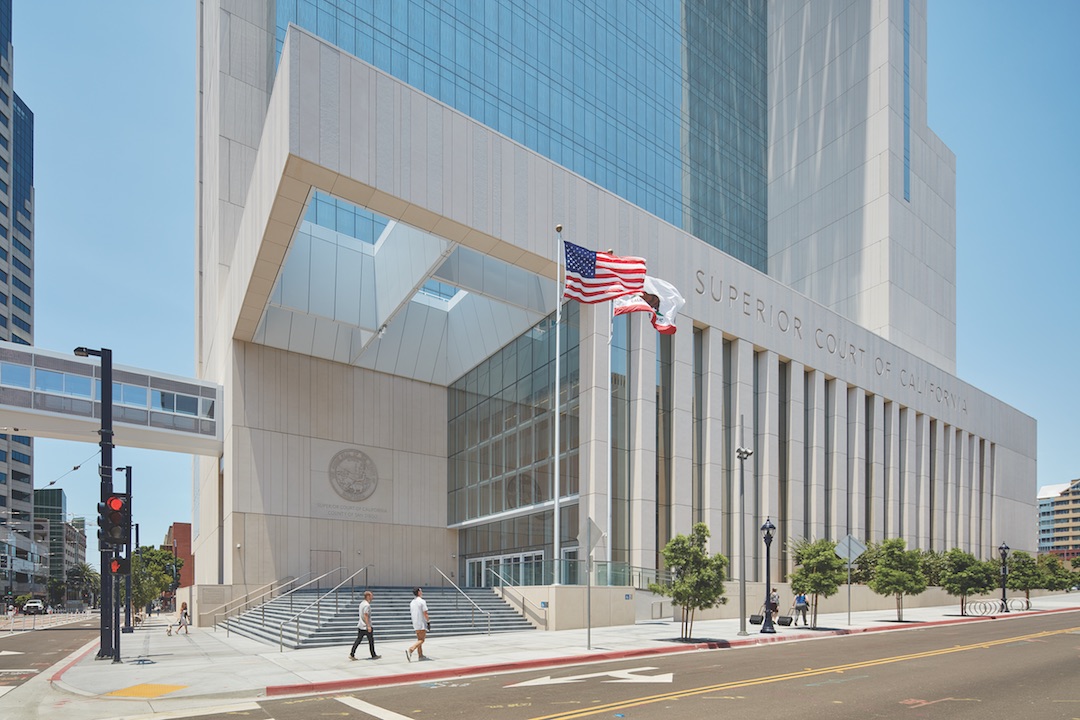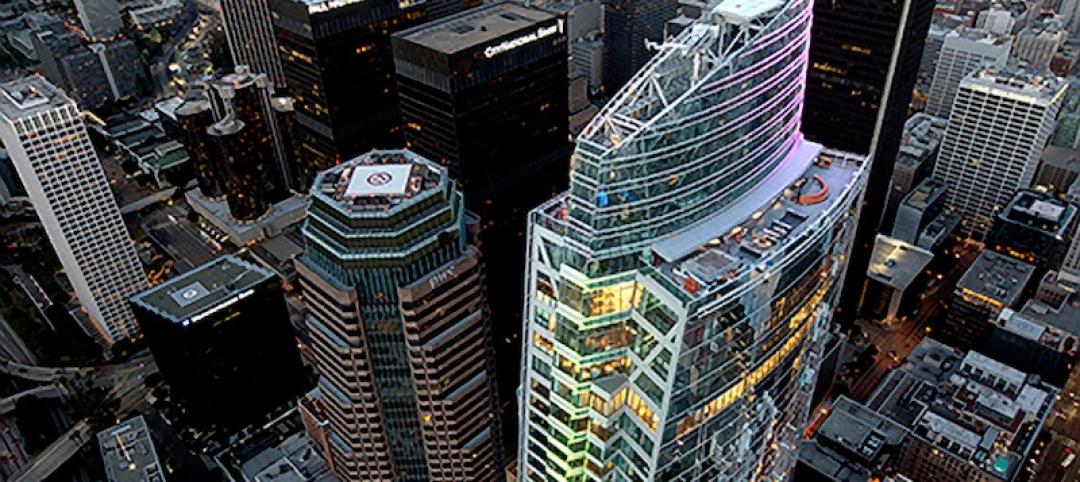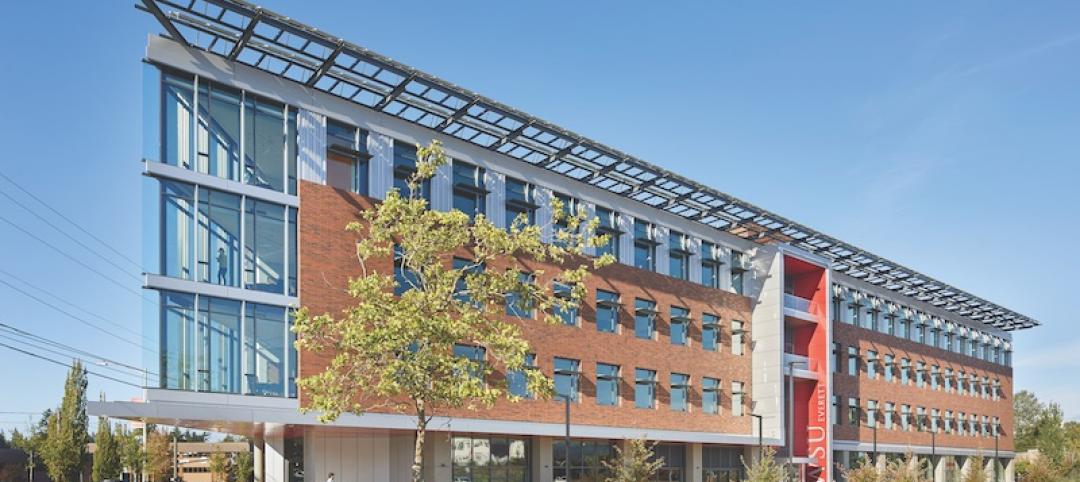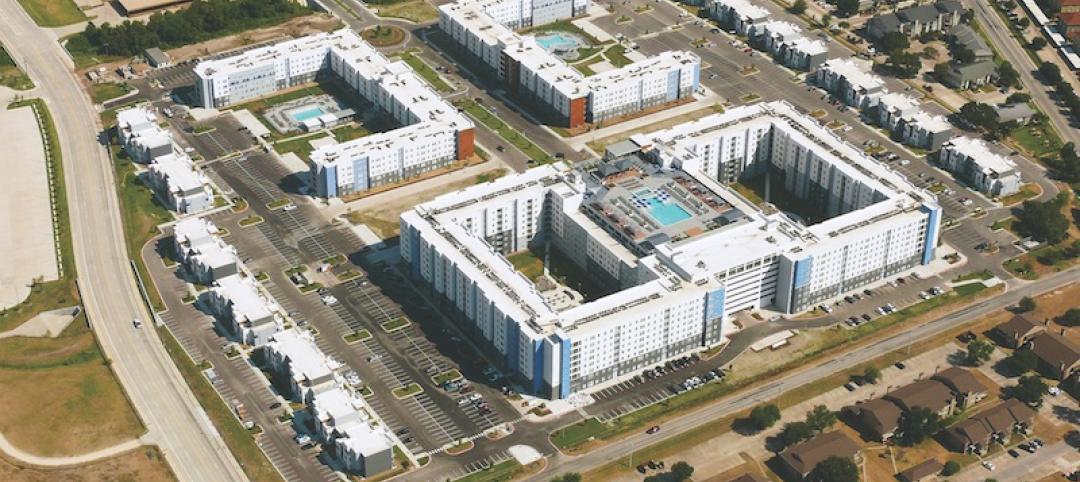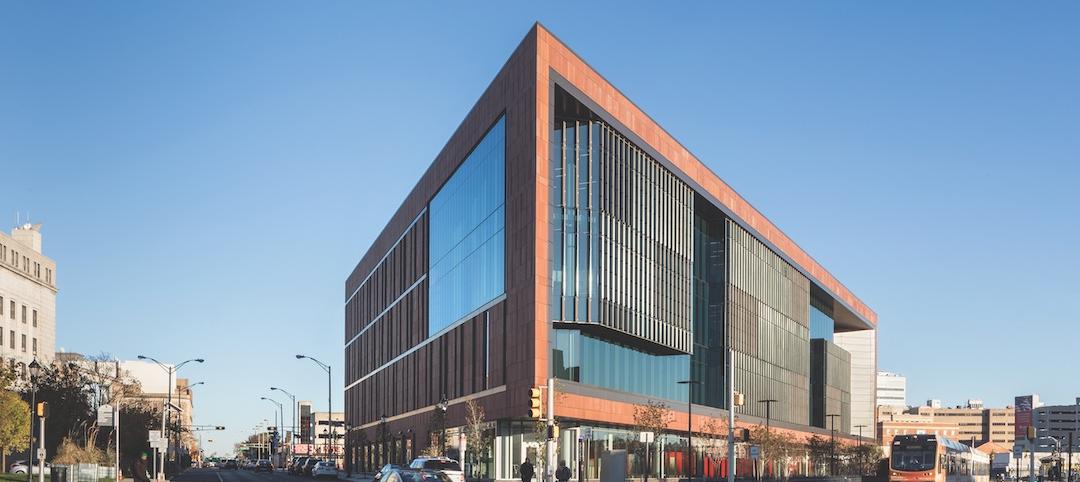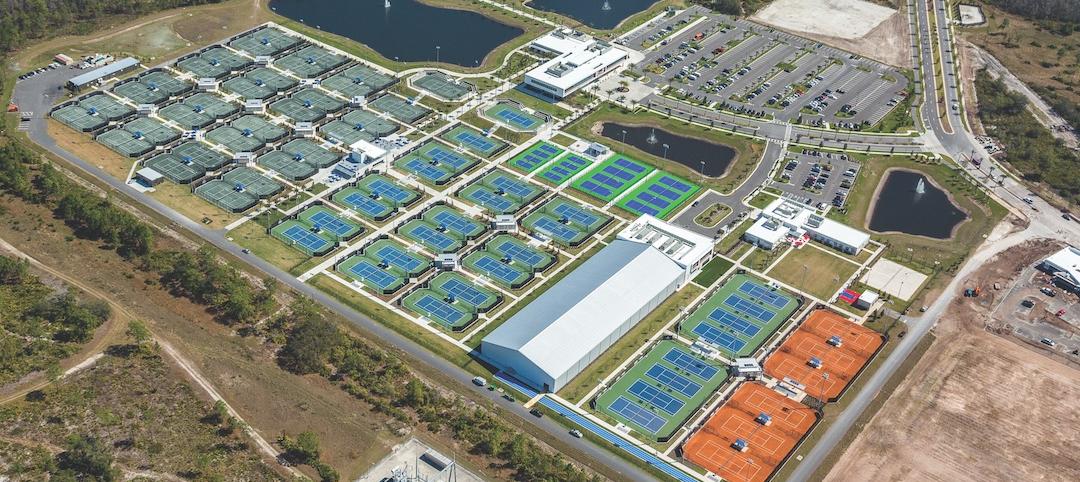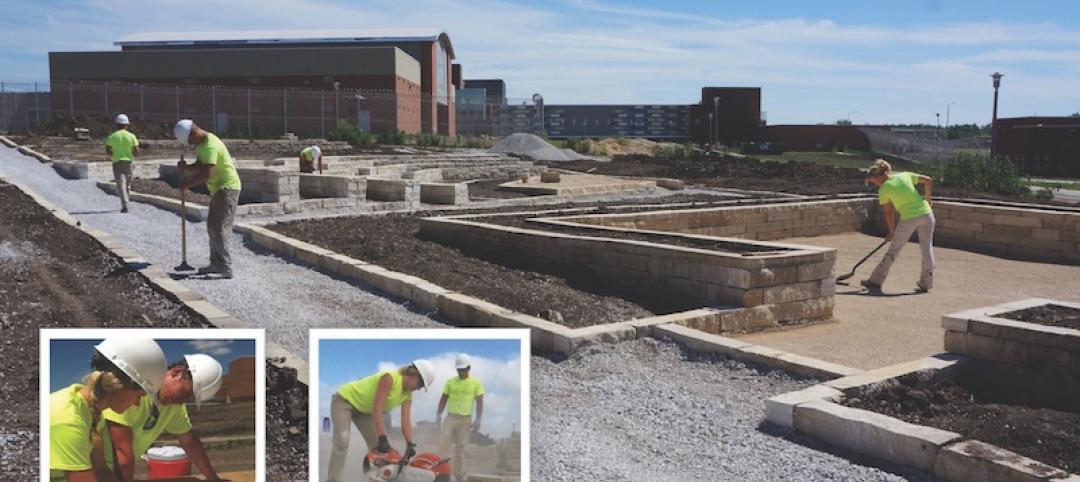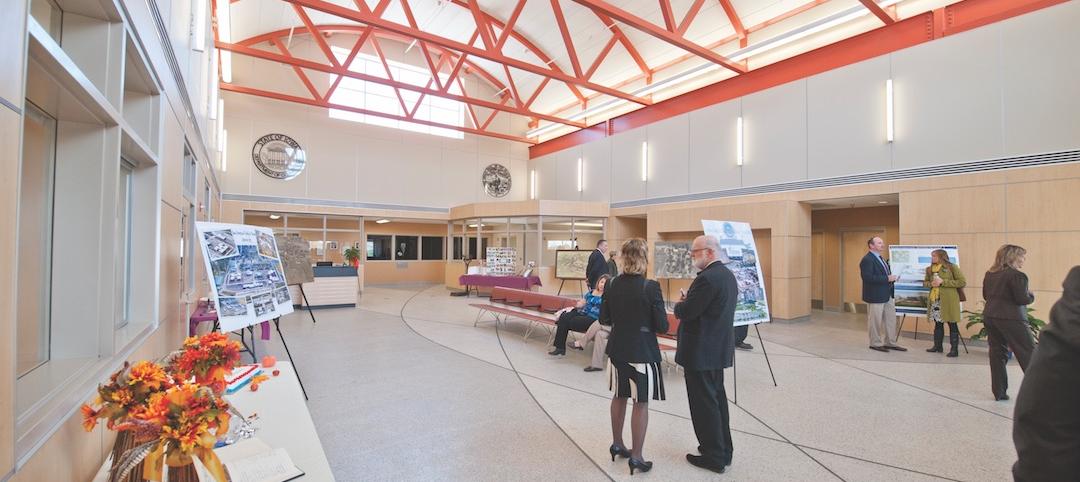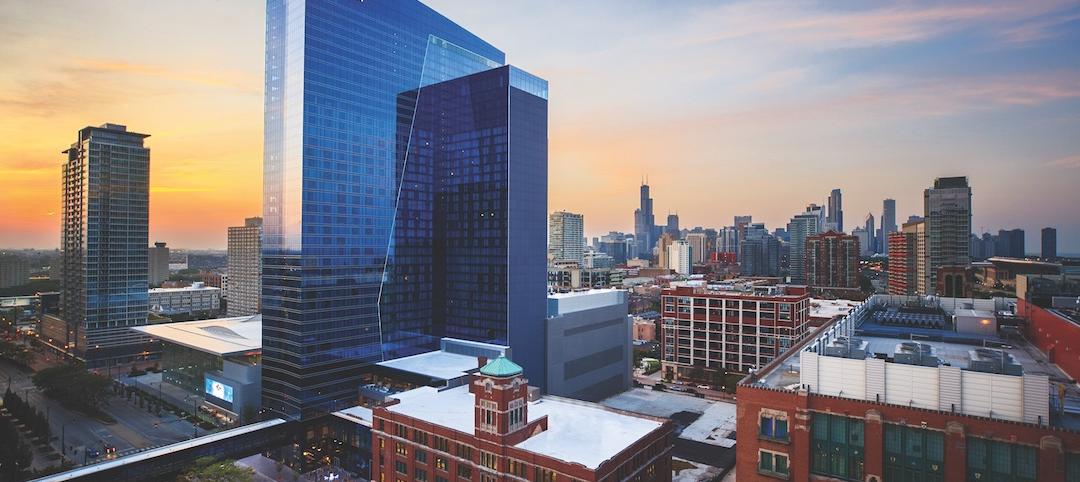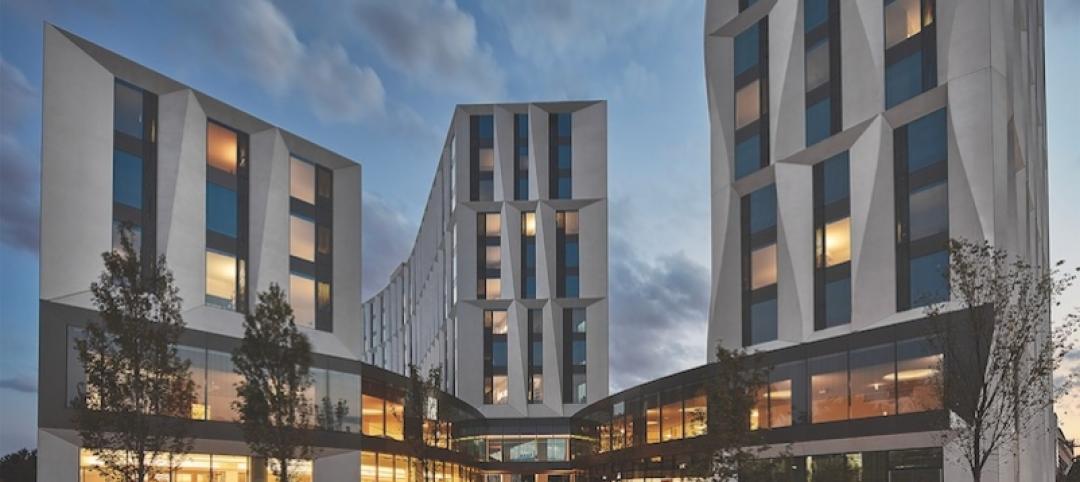Rising 24 stories in the center of downtown San Diego, the San Diego Central Courthouse, with its subtractive massing and slender form, topped with a dramatic aluminum-panel crown structure, makes a bold architectural statement about the future of civic buildings in America’s Finest City.
The 704,000-sf facility, on a former brownfield site at the intersection of Union and C Streets, is designed to serve as a catalyst for an emerging government district. It consolidates 71 departments across San Diego County’s criminal trial, family, and civil courts in a 21-story tower that sprouts from a three-story podium structure.
The high-volume functions of the criminal courts—arraignment courts, misdemeanor courts, offices, jury assembly rooms, business offices, cafeteria—are located within the podium. These functions are serviced by a cascading stair and escalator along a three-story lobby, which connects with a vestibule and a raised entry plaza. A fritted glass curtain wall brings natural light into the corridor.
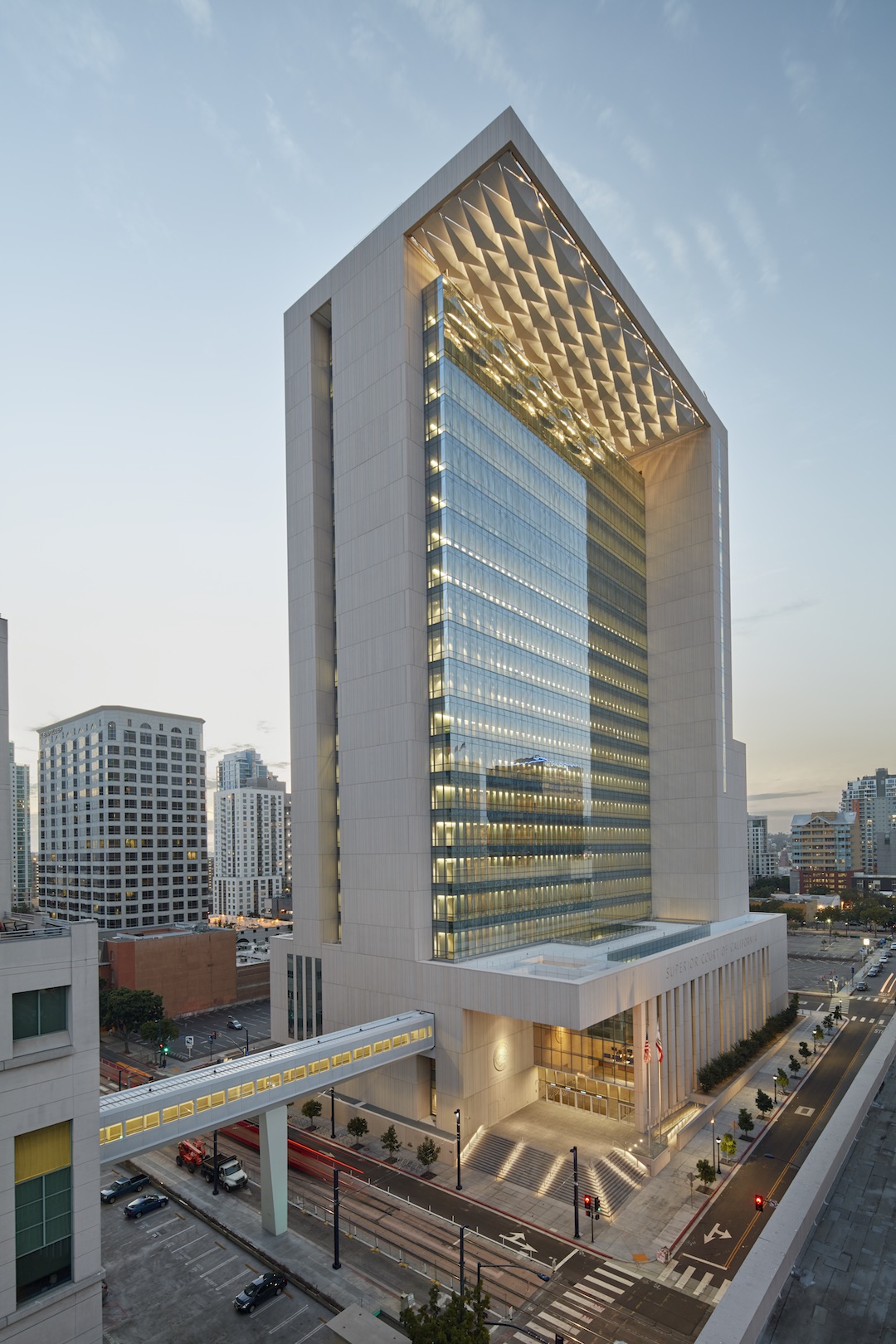 The courthouse is crowned with a distinctive canopy and soffit of shaped aluminum panels, which are arranged to capture and reflect southern and western light back onto the underside of the structure’s surface. Bruce Damonte, courtesy SOM.
The courthouse is crowned with a distinctive canopy and soffit of shaped aluminum panels, which are arranged to capture and reflect southern and western light back onto the underside of the structure’s surface. Bruce Damonte, courtesy SOM.
In the tower, the plan is organized based on a module of two pairs of courtrooms with a holding core in between. Clear and separate circulation paths are provided for the public and staff.
The courthouse connects via bridge to the adjacent Hall of Justice, at the third level. The bridge is accessible by escalator from the lobby and is adjacent to the new 500-person jury assembly room, permitting members of the public who have passed through security in either building to pass between buildings, and allowing the jury assembly room to serve both buildings.
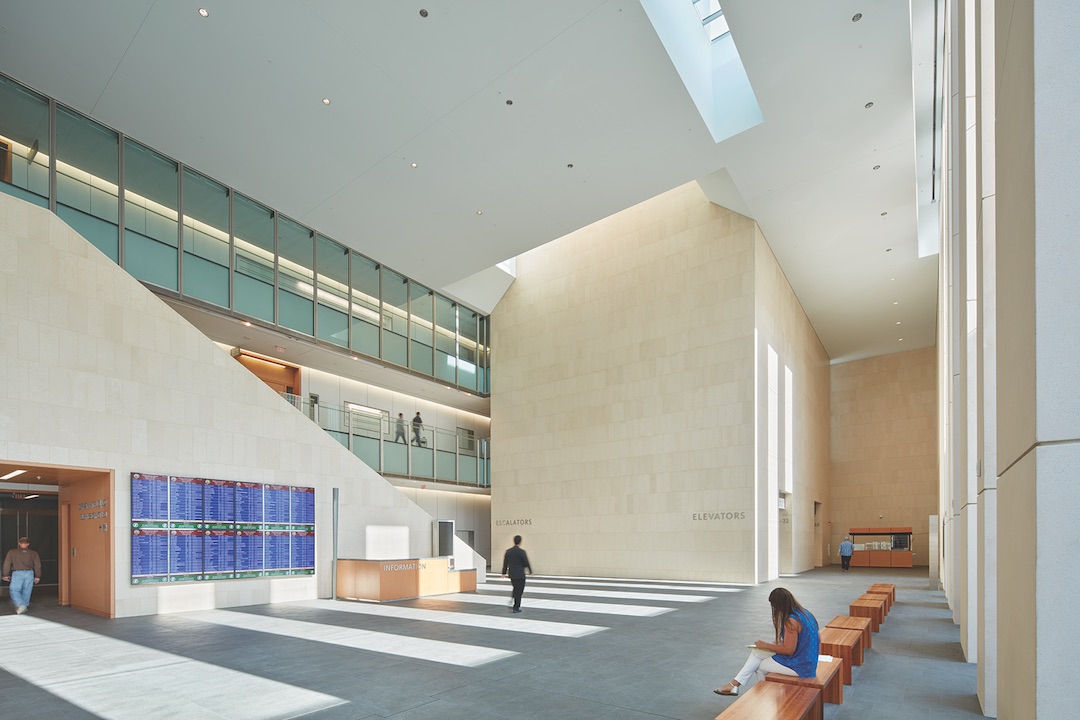 The high-volume functions of the criminal courts are located within the podium and are serviced by a cascading stair and escalator along a three-story lobby. Bruce Damonte, courtesy SOM.
The high-volume functions of the criminal courts are located within the podium and are serviced by a cascading stair and escalator along a three-story lobby. Bruce Damonte, courtesy SOM.
Working with the client, the project team delivered on several key owner objectives, including:
— Flexible, adaptable spaces. The client desired a building that could easily adapt to meet future needs. For example, the design of the family, probate, and civil courts is identical to the criminal trial courts, with the exception of the jury box. This allows the criminal courts to be converted to family or civil courts. Also, the jury deliberation rooms are sized to be convertible to judicial chambers, and the business offices in the podium feature large open floor plans for future programmatic evolution.
— Landmark design that celebrates the skyline. While not the city’s tallest building, the courthouse is among its most distinctive high-rises, with its angular, monolithic form topped with a distinguishing canopy structure that shades its east façade. Shaped aluminum panels form the soffit for the canopy and are arranged to capture and reflect southern and western light back onto the underside of the structure’s surface. This design feature gives the courthouse a bold civic identity within the skyline and “celebrates the unique light of San Diego,” say its designers.
— Enhanced seismic design. After evaluating several structural options, the team selected a solution that was both cost effective and would meet the client’s “enhanced” seismic performance objective. The structural system consists of a cost-efficient steel-framed superstructure with two-way lateral special moment frames that incorporate 106 nonlinear viscous damping devices (VDD). The VDDs were placed along the height of the structure, from level six to the roof, with four to six VDDs at each level. The viscous dampers provide a distributed supplemental energy dissipating damping system over the height of the structure to reduce seismically induced building story shears, story drifts, floor accelerations, and inelastic rotational demands on moment frame beam-column joints. They are also effective in providing damping for wind loads.
“The San Diego Central Courthouse increases the access to justice for citizens of San Diego County by consolidating 71 court departments,” said Clifford Ham, Judicial Council of California Administrative Office of the Courts. “The building is both noble and efficient, representing the importance of the Superior Court of California in this community and providing a safe, well-organized, technically sophisticated environment for the judicial proceedings.”
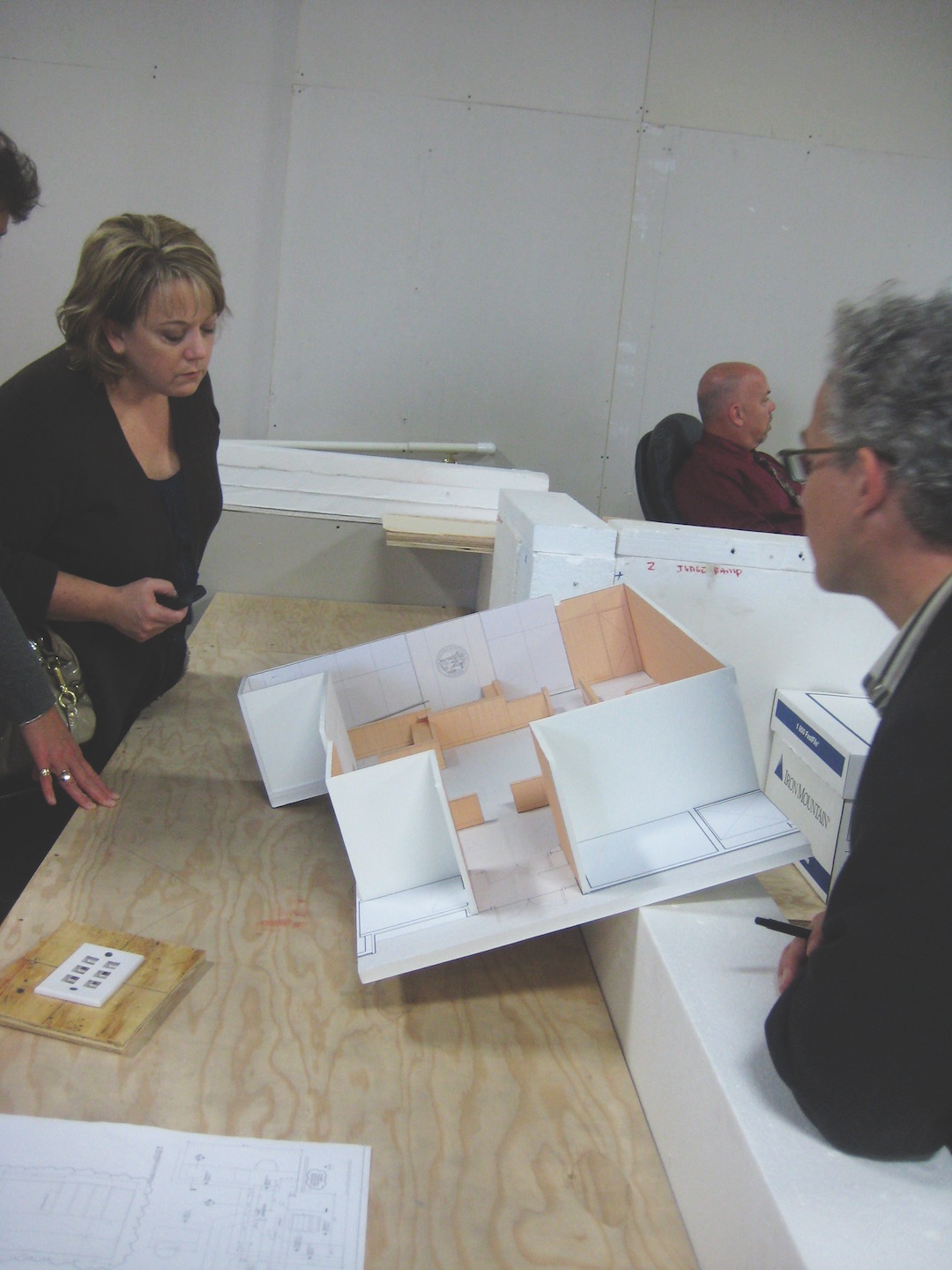 The project team built models and full-scale mockups to gather feedback from the judges, court staff, and secretarial user groups. Courtesy SOM.
The project team built models and full-scale mockups to gather feedback from the judges, court staff, and secretarial user groups. Courtesy SOM.
Building Team — Submitting firm, architect, structural engineer Skidmore, Owings & Merrill Owner Judicial Council of California Administrative Office of The Courts MEP engineer WSP General contractor Rudolph and Sletten
General Information — Size 704,000 sf Construction cost $465 million Construction time December 2013 to December 2017 Delivery method Design-bid-build
Return to the 2018 Building Team Awards Landing Page
Related Stories
Building Team Awards | May 22, 2018
LA's game changer: Wilshire Grand Center
Silver Award: This billion-dollar mixed-use tower will alter the Los Angeles skyline in more ways.
Building Team Awards | May 21, 2018
Campus builder: Everett University Center at Washington State University
Silver Award: WSU kicks off its new branch campus with a high-tech innovation center designed to engage students, businesses, and the community.
Building Team Awards | May 21, 2018
Promise fulfilled: Park West, Texas A&M University
Silver Award: A P3-driven team completes this mega off-campus student housing complex ahead of its fast-track schedule.
Building Team Awards | May 18, 2018
Prognosis: Positive: Rutgers University-Camden Nursing and Science Building
Gold Award: Can a new nursing school breathe life into America’s third-poorest city?
Building Team Awards | May 17, 2018
Patient priorities: Cleveland Clinic Taussig Cancer Center
Gold Award: Cleveland Clinic’s new cancer center is a transparent, collaborative hub for improved patient experiences and enhanced communication with caregivers.
Building Team Awards | May 16, 2018
Game, set, match: United States Tennis Association National Campus
Gold Award: With 100 courts and more than 260,000 sf of vertical construction, the USTA National Campus is a sanctuary for tennis enthusiasts.
Building Team Awards | May 14, 2018
Sweat equity marks landscaping effort
The design was grounded in therapeutic landscape and environmental psychology theory.
Building Team Awards | May 14, 2018
Rethinking prison design: Iowa Correctional Institution for Women
Platinum Award: Iowa's new women's correctional institution offers a revolutionary model for rehabilitating female inmates.
Building Team Awards | May 14, 2018
Dream delivered: McCormick Square Marriott Marquis and Wintrust Arena
Platinum Award: A daring hotel and sports development in Chicago’s South Loop aims to invigorate the city’s convention business.
Building Team Awards | Jun 14, 2017
17 projects earn BD+C's 2017 Building Team Awards
Of the 17 projects, one received a Platinum Award, six received Gold Awards, six received Silver Awards, two received Bronze Awards, and two received Honorable Mentions.


